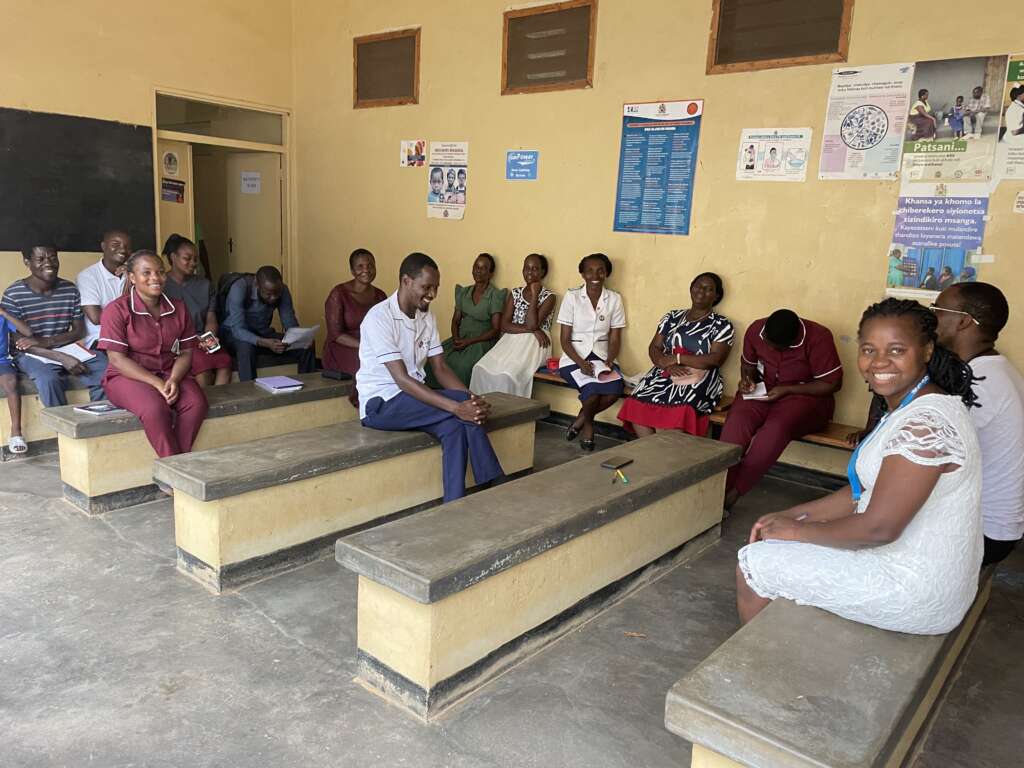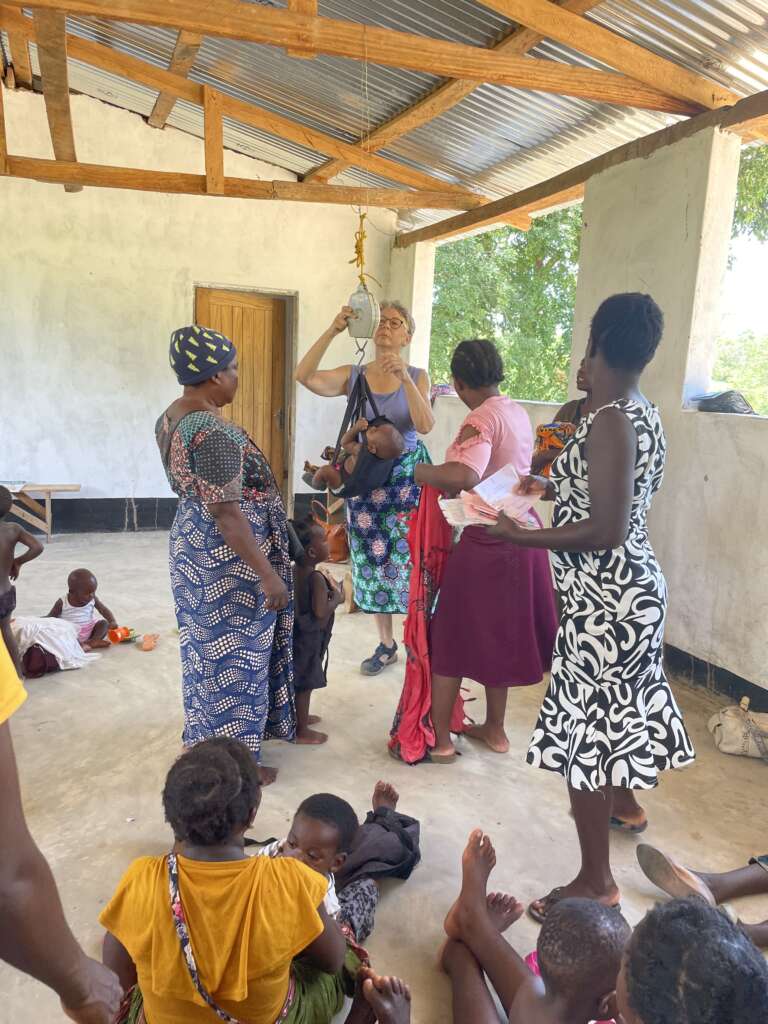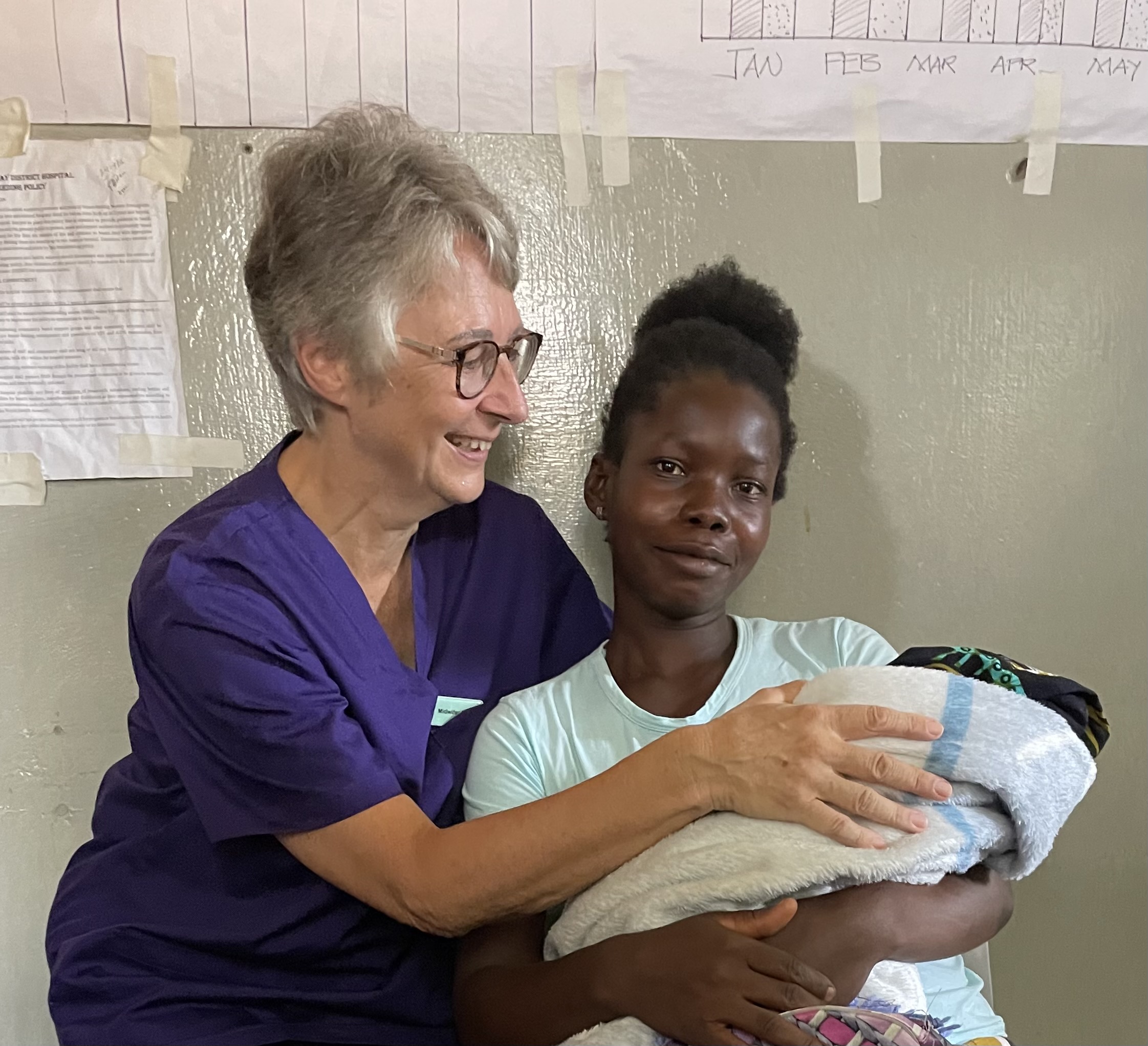So here I am, back in the UK as the new year starts. I have returned immediately to my work as an independent midwife in Sussex, and I’ve been reflecting on volunteering as a midwife in Malawi. What have I learned, what surprised me, and what this might mean for me in the future?
I really didn’t know what to expect from my trip. Over the years that I have worked in healthcare (I started way back in 1980!) I have talked to colleagues who have travelled overseas and taken an interest in accounts of those who have worked for various charities and NGOs. Always my question was “what makes someone able to take that step into the unknown & put themselves into such situations?”. Somehow I never quite realised that one day it could me be me.
There are obviously a range of situations for overseas work. For some it will be time spent in another industrialised country with an established healthcare system different to ours; for some it will be an observational placement as a student or during a gap year; for others, like me, it is time with a charity working in a country facing major challenges and very limited resources and for some it is as part of an international aid response to an area affected by war or natural disaster.
I often listen to podcasts as I drive between clients and it was one of these that set me on the path to volunteering. In October 2022 I listened to episode 119 of The Obs Pod https://g.co/kgs/NNd98MB An interview with Benjamin Black, about his newly published book https://www.benjamin-black.com/belly-woman/ got me reflecting on volunteering. I then read Damien Brown’s book https://www.goodreads.com/en/book/show/15702038. In October 2023 I was in Malawi…..
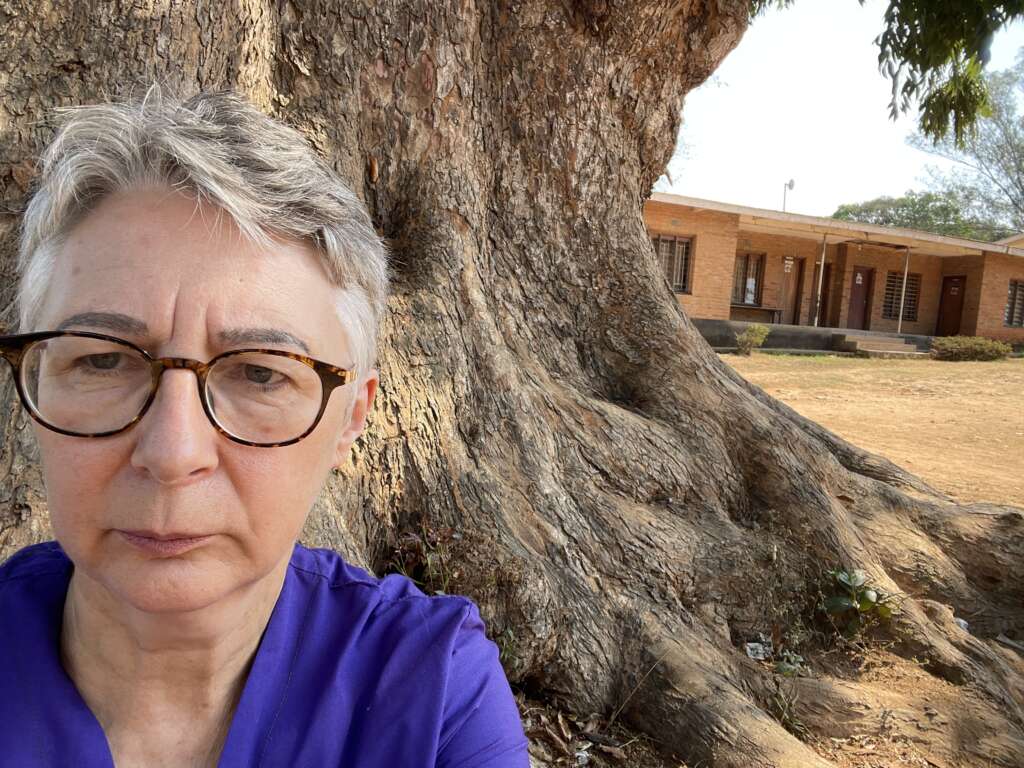
I knew I was not equipped emotionally or professionally to consider volunteering in a crisis situation. I realised, however, that I did want to be working hands on as a midwife. My host charity, Ripple Africa, provided an opportunity that felt to be an appropriate balance of supported but challenging https://rippleafrica.org/healthcare-volunteer-in-malawi-africa/. Malawi is politically stable, and is basically safe for a single woman travelling and working. It is however extremely poor – way beyond my imagination and understanding. English is the official language alongside a number of native languages. All healthcare staff are educated in English which is super helpful to me as someone with a poor ability to learn new languages.
One of my first realisations was that I needed to lean into the emotional and professional challenges. As someone who likes to be organised and to risk assess and manage situations, I had to accept that I lacked control of many aspects of life in Malawi. If I wanted to get involved I needed to accept a much lower level of control than I am used to. From shared taxi journeys (overcrowded vehicles of questionable road worthiness, on poor roads), to getting food and drink, to accepting that cockroaches and spiders are everywhere! Professionally, I needed to bite my tongue whilst I watched and tried to understand the cultural, educational and practical issues which impacted on practice. Culturally I knew that I needed to avoid the trap of being seen as the wealthy and/or smug white visitor. I had been given clear advice by the charity about how to handle the very many requests for money that I would meet with every day, but there were times that this created major ethical dilemmas for me. What do you do to when you realise that a mother who is in the ward with her premature baby has no money and no food, and no way to access either? A woman who cannot afford to buy the antibiotics that her baby needs? The very bright teenager who cannot move on from primary education because she hasn’t got the money (less than £1) to sit the exam to graduate from primary? The girls who are missing school because they haven’t got effective sanitary protection during their periods? I was very grateful to have access to the charity’s staff team to turn to at such moments.
I have been challenged by my increasing awareness of my privilege. As a healthy, white, middle class, well educated woman from the UK my world view is massively different from many people’s, and my life choices and life chances are unimaginable to a great proportion of the world’s population. I have spent many years of my professional life striving to support “natural” birth with minimal interventions, never realising that my view of “natural” as being “good/ideal” is a social construct rooted in my privileged view of the world. We have choices when others have none. Striving to support very sick and premature babies, giving vaccines to avoid potentially fatal diseases and so on are things which I had never realised could be double edged swords. By intervening in these ways, we are addressing specific issues, but these interventions can have unintended or often unrecognised consequences. Morally and ethically, is it appropriate to take action to prolong the life of a baby who is likely to have multiple serious health issues in a country where even generally healthy people struggle to survive? If we save people from death by vaccination against one specific disease, are we simply allowing them to live long enough to die of something else? These are stark questions, without easy answers, but ones which I have lost sleep over as I have been reflecting in volunteering.
I reminded myself frequently that the staff I met have been living, and will go on living these experiences. They have to find ways to provide care when I might feel it is impossible or unsafe. I was appalled by the way in the hospitals and clinics they were working without water, soap or even lights for much of the time. I was distressed by the knowledge that simple and cheap drugs or lab tests could potentially avoid harm or even save lives, if only they were available. I found the baby vaccination clinics confusing, exhausting and overwhelming. It would have been understandable if the staff found my presence and questioning difficult. Instead, almost everyone I met was welcoming and many were very generous with their time and energy. I felt accepted and enjoyed mutually respectful working relationships.
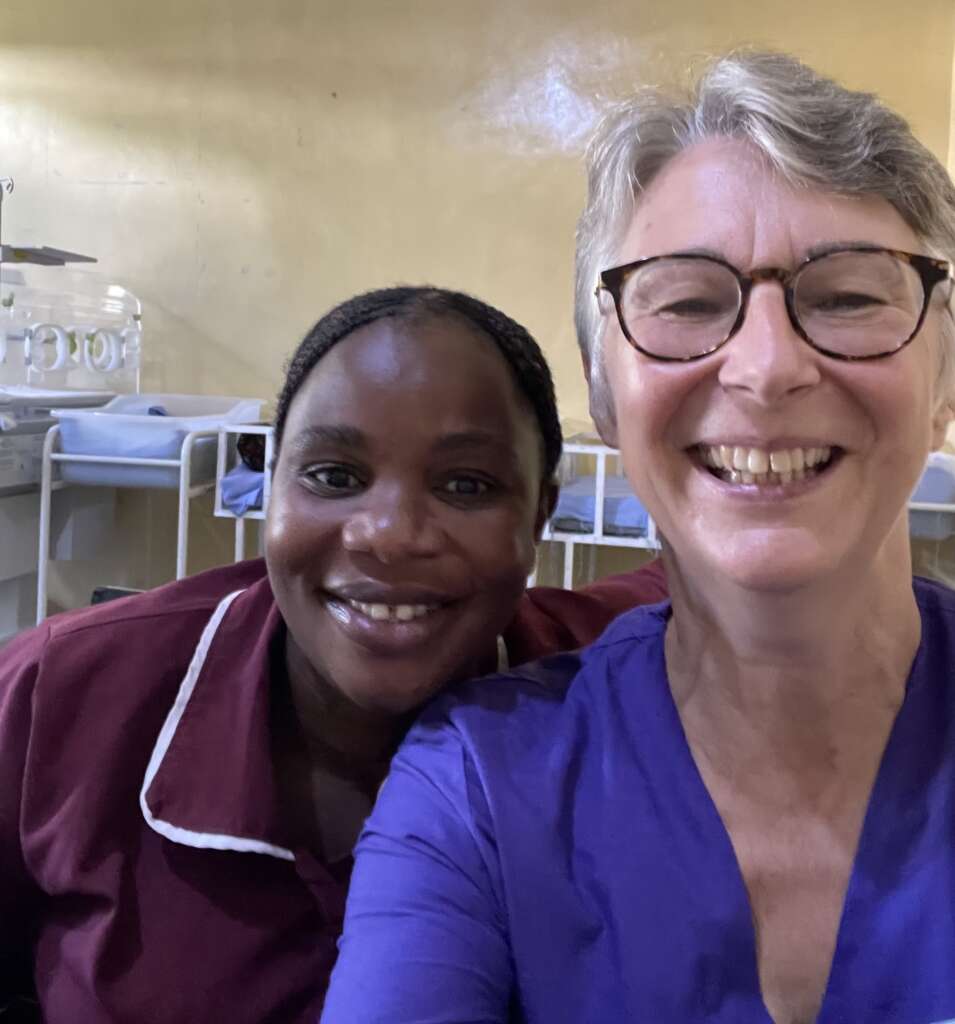
Was it a good experience? Good was probably not a word I would have used in the early days, but it certainly became so. I spent time in a beautiful place, met some great people and learned lots about myself and about life (including about midwifery). Would I do it again? Absolutely! I’m not sure when but it now seems inevitable that I will do more of this type of work. Would I encourage other people to do it? 100% yes, provided that you are able to accept that what we accept as “best” or the “right” way to do things may be culturally defined or a reflection of our privilege. Watch, be curious and be respectful of difference. As the saying goes, you have 2 eyes, 2 ears and one mouth – use them in those proportions!
